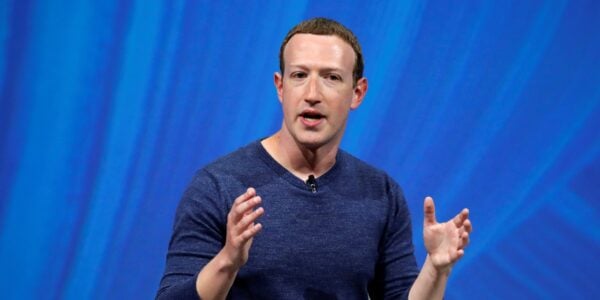
Donald Trump/Facebook
- Facebook posts from conservative news outlets receive the most interactions on the world’s largest social media platform, according to metrics from Facebook-owned CrowdTangle.
- But Instagram, which is also owned by Facebook, is a the exact opposite: The photo- and video-sharing app is dominated by liberal messages, including posts related to the Black Lives Matter movement and climate change, according to CrowdTangle.
- Instagram users skew younger, according to the Pew Research Center, which may be part of the reason for the ideology gap between the two platforms.
- Visit Business Insider’s homepage for more stories.
Instagram is a far more liberal-friendly place than Facebook, according to new data from Facebook.
Moreover: Instagram users are far more likely to share liberal-leaning messages, including support for the Black Lives Matter movement and climate change, than Facebook users.
That’s according to new data from Facebook-owned CrowdTangle reported by Axios, which highlights climate change, the Black Lives Matter movement, and the anti-Trump “Resist” movement as some of Instagram’s most popular content.
By comparison, on Facebook, the Trump campaign slogan “Make America Great Again” received more than double the interactions it did on Instagram.
Instagram’s userbase also skews younger than Facebook, according to the Pew Research Group. Among the 65 and older crowd, just 8% of survey respondents said they used Instagram. That jumps to nearly 50% for Facebook use among the same demographic.
That age disparity helps to explain at least part of the difference between political ideology popularity on the two social media platforms: Liberal ideals tend to skew younger, while conservative ideals tend to skew older.
Facebook execs, including CEO Mark Zuckerberg, have long contested that its social media platforms have partisan bias. Though Facebook's daily interactions charts are dominated by the official pages of Fox News and conservative YouTube creator Ben Shapiro, Facebook's head of News Feed John Hegeman disputed this way of measuring the popularity of Facebook content.
"These lists don't represent what most people see on FB," Hegeman wrote on Twitter in July. "While some link posts get a lot of interactions, likes or comments, this content is a tiny [percent] of what most people see on FB. News from these Pages don't represent the most viewed news stories on FB, either."
In so many words: Despite having the most interactions, those news stories aren't necessarily surfacing for most Facebook users. What matters, Hegeman said, is reach.
"A more accurate way to see what's popular [on Facebook] is to look at the links with the most reach (impressions) in the US," he said. Facebook doesn't release impressions data to the public, but Hegeman said the company is "exploring ways to incorporate it" into publicly available data, though it's unclear when that will happen.
Got a tip? Contact Business Insider senior correspondent Ben Gilbert via email ([email protected]), or Twitter DM (@realbengilbert). We can keep sources anonymous. Use a non-work device to reach out. PR pitches by email only, please.











